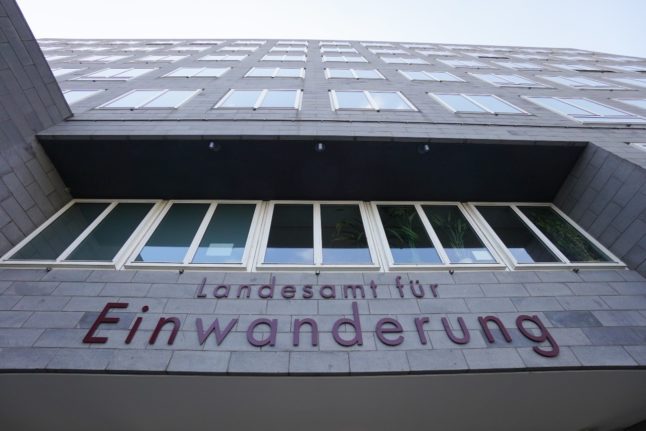As part of its push to digitalise bureaucratic services, Germany has a goal of making 575 various services available exclusively online in each state.
The Online Access Act (Onlinezugangsgesetz) aimed to hit that mark by the end of 2022 – but all the 16 states are lagging significantly behind, according to new data from the German government’s Digital Dashboard.
The states offering the most services online – be it registering a flat or applying for a state benefit – are Bavaria (with 235 digital services to date), Hesse (212) and Hamburg (215).
Those falling the furthest behind are the northern city-state of Bremen (185), eastern Saxony-Anhalt (139) and the smallest state of Saarland (132).
READ ALSO: Is Germany a ‘failed state’ for public digital services?
In Bavaria, several individual cities have started offering services not available online elsewhere in the Bundesrepublik. Augsburg, for example, launched a digital building permit approval (Baugenehmigung) this week.
Bavaria, Frankfurt and Hamburg also all offer their own portals for residents listing digital services – including registering and unregistering apartments and applying for state benefits.
Is Germany making progress towards digitalisation?
Within the framework of the ambitious law, almost all existing administrative services used by people and businesses in Germany are set to be converted to digital format.
Some of the key services set to be offered exclusively online, without going to an office or filling out paperwork, are registering a change of residence, applying for housing subsidies or a driving licence, issuing a birth certificate and obtaining a building permit.
Many have also pushed for immigration authorities – which have notoriously long waits for an in-person appointment – to offer appointments exclusively online.
Under the act, the option of submitting applications in paper form will remain for those who desire it.
However, Germany has frequently been criticised in the department of digitalisation. The Bundesrepublik lags behind many of its neighbours when it comes to how well countries are doing on digital skills and internet access.
According to the EU’s Digital Economy and Society Index for 2022, Germany took the 13th spot just behind France in the ranking.
The country is unlikely to improve significantly in the coming months: According to the budget plans, the Interior Ministry has earmarked €3.3 million for the digitalisation of administration and administrative services next year – compared to €377 million this year. The final budget is set to be cemented by the end of September.
But individual states continue to push more services online – Berlin for example, announced on Friday that residents could apply for Elterngeld, or parental allowance, exclusively online. The service has long since been available free of paperwork, by contrast, in Bavaria.
During the Covid-19 pandemic, more and bureaucratic processes in Germany migrated online for the first time, including registering an address in some states, applying for a work permit, and requesting sick leave.
Still, online services can take a while until they’re fully functional, with some services announced as being exclusively digital yet still requiring paperwork and in-person appointments.
READ ALSO: How using Germany’s new digital car registration service turned into a bureaucratic nightmare




 Please whitelist us to continue reading.
Please whitelist us to continue reading.
Member comments